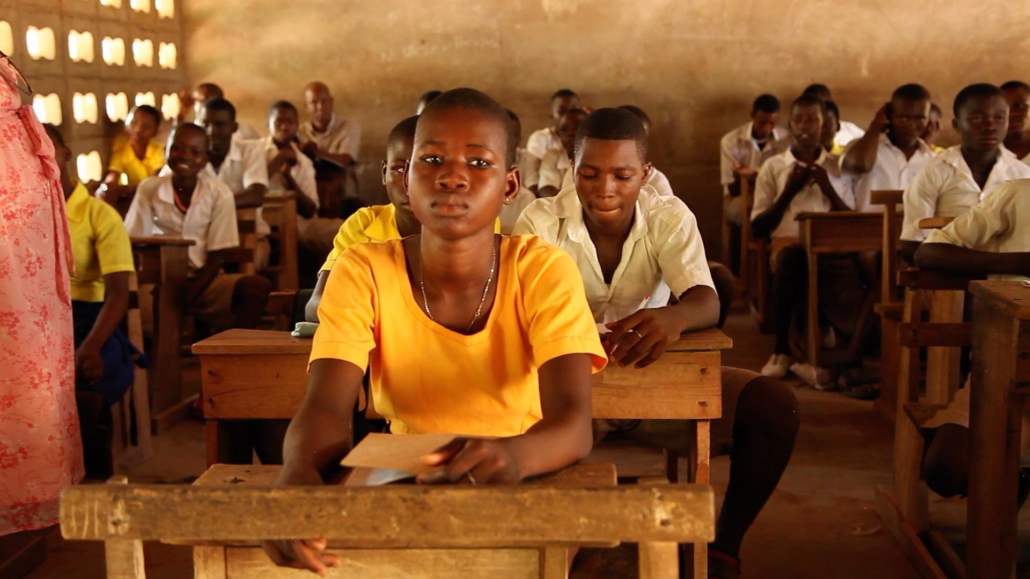Addressing Child Marriage in Ghana
 Child marriage, a human rights violation disproportionally affecting girls, is deeply ingrained within Ghanaian life. Despite the 1992 constitution unequivocally outlawing the practice, 5% of girls in Ghana are married before their 15th birthday and 20% before the age of 18.
Child marriage, a human rights violation disproportionally affecting girls, is deeply ingrained within Ghanaian life. Despite the 1992 constitution unequivocally outlawing the practice, 5% of girls in Ghana are married before their 15th birthday and 20% before the age of 18.
A Multifaceted Issue
Child marriage is difficult to eradicate in Ghana because it is rooted in cultural norms and is a symptom of deep-seated gender inequality that commodifies girls and women. Parents may betroth their young daughters to evade the risk of out-of-wedlock pregnancy, which is intertwined with notions of family honor, or in exchange for a bride price. These practices affect girls from rural communities more than twice as much as those residing in urban areas.
Financial hardship is a powerful catalyst for marriage because the latter often acts as an economic harbor for girls and their families; 33% of female minors from Ghana’s poorest wealth quintile marry before they turn 18, compared with 5% from the richest. Moreover, child marriage in Ghana often comes with a lack of formal education. In the absence of alternative prospects, 43% of Ghanaian girls who have not completed secondary education marry as children, compared with 13% who have, UNICEF reports.
The Impacts of Child Marriage in Ghana
With more than 90% of child brides in Ghana aged between 15 and 17 out of school, compared with 18% of their peers, according to UNICEF data, child marriage disempowers girls by cutting them off from their potential and preventing them from engaging in their communities and Ghana’s labor market. Despite the temporary financial relief the practice may offer, it keeps generations of young women stagnated in poverty and in turn hampers Ghana’s socioeconomic development.
Furthermore, beyond the violating nature of the practice itself, child brides are more likely to experience intimate partner violence than women who marry as adults. Globally, girls who marry before 15 are 50% more at risk. With one in five child brides in Ghana married to a man 10 or more years their senior, according to UNICEF data, severely imbalanced power dynamics, combined with reduced access to personal development through education, could leave them vulnerable to continued exploitation. Those who become pregnant also find themselves at a heightened risk of related health complications and maternal death.
Efforts to Protect Girls
The government has shown a strong commitment to eliminating child marriage in Ghana, which is reflected in tangible progress. The proportion of girls married as minors fell from 34% in 1993 to 19% in 2018, according to UNICEF, placing Ghana ahead of the vast majority of other West and Central African nations.
In 2014, the Ministry of Gender, Children and Social Protection instituted the Child Marriage Unit, which champions new initiatives and coordinates national efforts to end the practice. Furthermore, in 2016 the government launched its 10-year National Strategic Framework on Ending Child Marriage in Ghana, which sets clear goals and provides direction to all institutions involved, creating a holistic action plan, according to UNICEF.
A 2019 survey revealed a consensus in Ghana that authorities could better enforce the law when it comes to child marriage and that local chiefs should make greater use of their platforms to speak up against it. ActionAid Ghana is one of many NGOs to recognize the necessity of uprooting the practice on a local level, training community-led anti-violence teams that work to bring the issue to light and commune with the authorities to impose justice on the perpetrators.
Education as a Pathway
The UNFPA-UNICEF Global Programme to End Child Marriage has partnered with Girls Not Brides to develop the Child Marriage Research to Action Network (CRANK), which gathers the latest and most robust data on child marriage, and advocates for policy changes and initiatives addressing these findings. The most recent report identifies education as fundamental to steering girls clear of the practice and promoting other protective factors such as engagement with health services.
CAMFED is one of several NGOs working in this area. In addition to providing financial backing to female students living in impoverished rural areas, it has implemented several initiatives centered on community development. The Learner Guides Program trains female graduates and former beneficiaries of CAMFED’s support as mentors for girls in their districts. They learn how to deliver the My Better World program, which empowers girls by helping them to set goals and develop skills that will aid them in future life. Learner Guides also act as empathetic role models, providing pastoral support and health information and connecting vulnerable girls to the appropriate services. They can also access interest-free loans through the program, allowing them to start local businesses and in turn increase their prospects and generate jobs.
CAMFED Ghana has helped more than 248,000 girls access school through donor funds, and its community initiatives and members of the CAMFED Association, a growing network of young women from various backgrounds spearheading CAMFED’s projects, have supported more than 846,000. Its work addresses several other priority areas that the latest CRANK report highlights, such as the importance of female entrepreneurship and of creating safe spaces to empower and inform girls.
Moving Forward
Despite significant progress, child marriage in Ghana persists and more remains to be done to change this. However, momentum characterizes the country’s fight against the practice. Hope is strong for a future where child marriage cannot extinguish the light of childhood for any more of Ghana’s girls.
– Leila Powles
Leila is based in Cheltenham, UK and focuses on Global Health and World News for The Borgen Project.
Photo: Flickr
